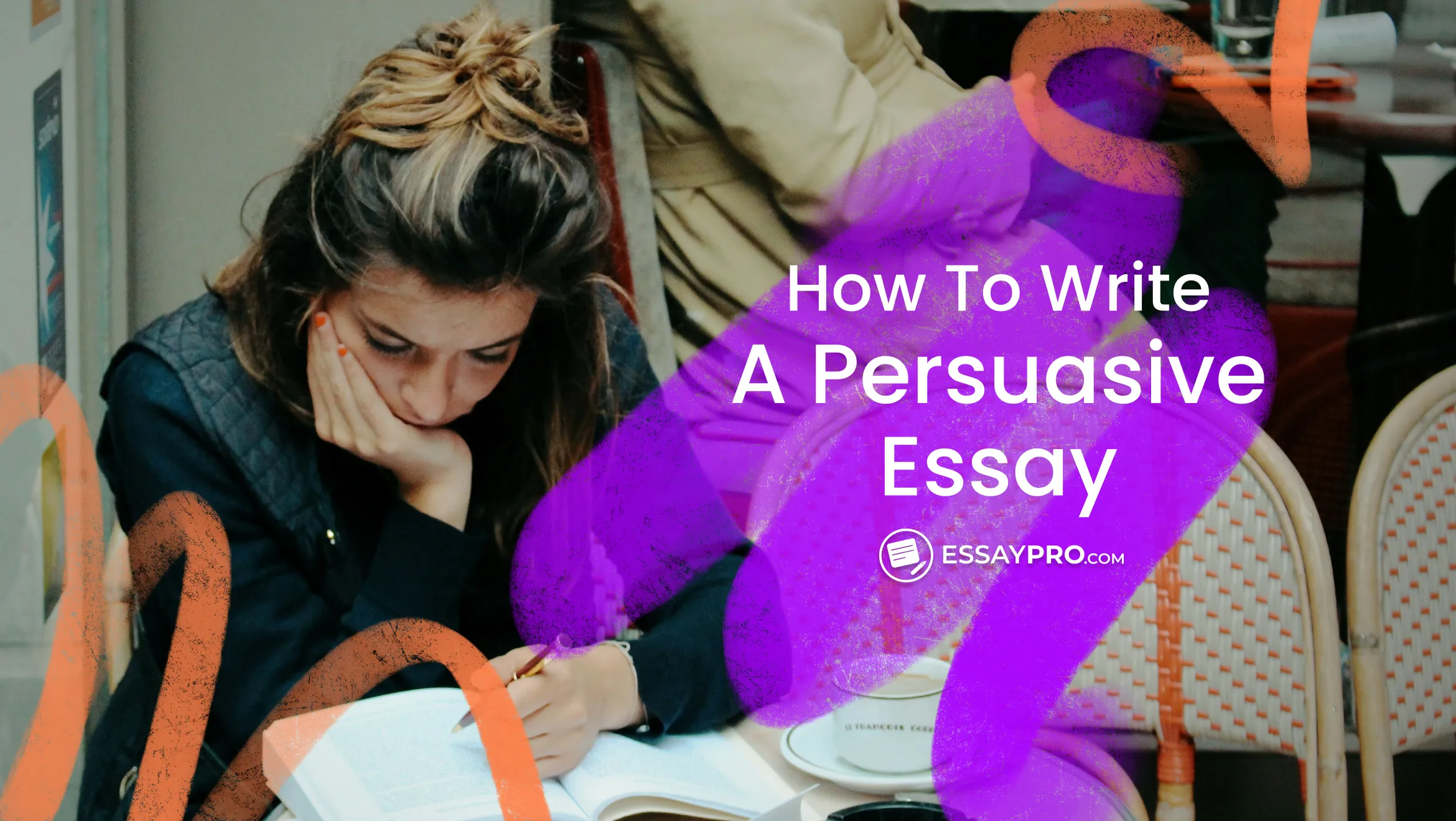Critical thinking is a powerful skill that helps you analyze information and form well-reasoned arguments. As a matter of fact, the human brain uses more energy when critically thinking than when relaxing. This article will guide you through the steps of writing a successful critical thinking essay.
In this article, you will learn:
- How to craft a strong essay
- The importance of these essays
- The structure with an example
- Valuable bonus tips to strengthen your writing
By following these steps and incorporating the provided information, you'll be well on your way to writing impressive essays. If you need further guidance, always count on our fast essay writing service.
What is Critical Thinking Essay
A critical thinking essay is a type of writing where you analyze a topic thoroughly. You'll consider different viewpoints, evaluate evidence from studies or expert opinions, and form your own well-reasoned conclusion. Here, you need to look at an issue from all angles before deciding where you stand. This type of essay goes beyond memorizing facts. It actively engages with information, questions assumptions, and develops your own thoughtful perspective.


Importance of Critical Thinking and Its Use in Writing
Critical thinking is a skill that benefits all types of writing, not just essays. It helps you become a more informed and effective communicator. Here's why it's important:
- Stronger Arguments: Critical thinking helps you build solid arguments. You won't just state your opinion but back it up with evidence and consider opposing viewpoints. This makes your writing more persuasive and convincing.
- Deeper Understanding: When writing a critical thinking essay, you'll analyze information, identify biases, and think about the bigger picture. This leads to a richer understanding of the topic and a more insightful essay.
- Clearer Communication: By organizing your thoughts critically, your writing becomes clearer and more focused. You'll present your ideas in a logical order, making it easier for readers to follow your argument.
- Spotting Fake News: Critical thinking skills help you evaluate the information you encounter online and in the world around you. You'll be better equipped to identify unreliable sources and biased information, making you a more discerning reader and writer.
- Improved Problem-Solving: Critical thinking helps you approach challenges thoughtfully. As you write, you'll learn to analyze complex issues, consider different solutions, and ultimately develop well-reasoned conclusions. This skill extends beyond writing and can be applied to all areas of your life.
For more detailed information on the importance of critical thinking, visit our dedicated article.
Critical Thinking Essay Format
In a critical thinking essay outline, each piece has its place and contributes to the overall picture. Here's a breakdown of the key components:
Check out our critical analysis example to see how this format comes to life.
Critical Thinking Essay Questions
Now that you understand the structure of this essay, let's get your brain working! Here are some questions to help you generate strong critical thinking essay topics:
- How can you tell if a source of information is reliable?
- What are the potential biases that might influence research or news articles?
- How can you identify logical fallacies in arguments?
- How can you weigh the pros and cons of a complex issue?
- How can your own experiences or background influence your perspective on a topic?
Sample Essay Topics:
- History: Should historical monuments that celebrate controversial figures be removed or repurposed?
- Science: With advancements in gene editing, should we allow parents to choose their children's traits?
- Art & Culture: Does artificial intelligence pose a threat to the creativity and value of human art?
- Space Exploration: Should we prioritize colonizing Mars or focus on solving problems on Earth?
- Business Ethics: Is it ethical for companies to automate jobs and potentially displace workers?
- Education: In a world with readily available information online, is traditional classroom learning still necessary?
- Global Issues: Is focusing solely on national interests hindering efforts to address global challenges like climate change?
Remember, these are just a few ideas to get you started. Choose a topic that interests you and allows you to explore different perspectives critically.
How to Write a Critical Thinking Essay
We've covered the foundation – the structure and key elements of a critical thinking essay. Now, let's dive into the writing process itself! Remember, the steps on how to start a critical thinking essay, such as defining your topic, crafting a thesis, gathering evidence, etc., are all interconnected. As you write, you'll move back and forth between them to refine your argument and build a strong essay.
If you're looking for a hassle-free solution, simply buy cheap argumentative essay from our experts.
.webp)
Understand the Assignment Requirements
Taking some time to understand the assignment from the beginning will save you time and frustration later. Grasping your critical thinking paper instructions ensures you're on the right track and meeting your teacher's expectations. Here's what to focus on:
- The Prompt: This is the core of the assignment, outlining the topic and what you're expected to do. For example, if it asks what critical thinking skills are, Look for keywords like "define," "describe," or "explain." These indicate the type of essay you need to write and the approach you should take.
- Specific Requirements: Pay attention to details like the essay length, formatting style (e.g., MLA, APA), and any specific sources you need to use. Missing these guidelines can lead to point deductions.
- Grading Rubric (if provided): This is a goldmine! The rubric often outlines the criteria your essay will be graded on, like clarity of argument, use of evidence, and proper citation style. Knowing these expectations can help you tailor your writing to excel.
Select a Critical Thinking Topic
Think about the prompt or theme provided by your teacher. Are there any aspects that pique your interest? Perhaps a specific angle you haven't explored much? The best topics are those that spark your curiosity and allow you to engage with the material in a meaningful way.
Here are some tips for selecting a strong critical thinking essay topic:
- Relevance to the Assignment: Make sure your chosen topic directly relates to the prompt and allows you to address the key points. Don't stray too far off course!
- Interest and Engagement: Choose a topic that you find genuinely interesting. Your enthusiasm will show in your writing and make the research and writing process more enjoyable.
- Complexity and Scope: Aim for a topic that's complex enough to provide depth for analysis but not so broad that it becomes overwhelming. You want to be able to explore it thoroughly within the essay's length limitations.
- Availability of Sources: Ensure you have access to credible sources like academic journals, news articles from reputable sources, or books by experts to support your argument.
Remember: Don't be afraid to get creative! While some prompts may seem broad, there's often room to explore a specific angle or sub-topic within the larger theme.
Conduct In-Depth Research
This is where you'll gather the information and evidence when writing a critical thinking essay. However, don't just copy information passively. Critically analyze the sources you find.
- Start with Reliable Sources: Steer clear of unreliable websites or questionable information. Focus on credible sources like academic journals, scholarly articles, reputable news outlets, and books by established experts in the field.
- Use Library Resources: Librarians can guide you towards relevant databases, academic journals, and credible online resources.
- Search Engines Can Be Your Friend: While you shouldn't rely solely on search engines, they can be helpful starting points. Use keywords related to your topic, and be critical of the websites you visit. Look for sites with a clear "About Us" section and reputable affiliations.
- Vary Your Sources: Don't just rely on one type of source. Seek out a variety of perspectives, including research studies, data, historical documents, and even opposing viewpoints. This will give your essay well-roundedness and depth.
Develop a Strong Thesis Statement
Your thesis statement encapsulates your main argument or perspective on the topic. A strong thesis statement tells your readers exactly what your essay will be about and prepares them for the evidence you'll present.
During your critical thinking process, make sure you include these key characteristics:
- Specificity: It goes beyond simply stating the topic and clearly outlines your position on it.
- Focus: It focuses on a single main point that you'll develop throughout the essay.
- Argumentative: It indicates your stance on the issue, not just a neutral observation.
- Clarity: It's clear, concise, and easy for the reader to understand.
For example, here's a weak thesis statement:
Deepfakes are a new technology with both positive and negative implications.
This is too vague and doesn't tell us anything specific about ethics. Here's a stronger version:
While deep lakes have the potential to revolutionize entertainment and education, their ability to create highly convincing misinformation poses a significant threat to democracy and social trust.
This thesis is specific, focused, and clearly states the argument that will be explored in the essay.
Outline the Structure of Your Essay
With a strong thesis statement guiding your way, it's time to create a roadmap for your essay. This outline will serve as a blueprint, ensuring your arguments flow logically and your essay has a clear structure. Here's what a basic outline for a critical thinking essay might look like:
This is a flexible structure, and you may need to adapt it based on your specific topic and the length of your essay. However, having a clear outline will help you stay organized and ensure your essay flows smoothly from point to point.
Write an Engaging Introduction
The introduction should be captivating and give your reader a taste of what's to come. Here are some tips for crafting a strong introduction:
- Start with a Hook: Use an interesting fact, a thought-provoking question, or a relevant anecdote to grab your reader's attention right from the start. This will pique their curiosity and make them want to read more.
- Introduce the Topic: Briefly introduce the topic you'll be exploring and explain its significance. Why is this topic important to discuss?
- Present Your Thesis: Clearly and concisely state your thesis statement. This tells your reader exactly what your essay will argue and prepares them for the evidence you'll present.
For example, Let's say your essay is about the growing popularity of online learning platforms. Here's an introduction that uses a hook, introduces the topic, and presents a thesis statement:
With millions of students enrolled in online courses worldwide, the way we learn is undergoing a dramatic transformation. Traditionally associated with brick-and-mortar classrooms, education is now readily available through virtual platforms, offering flexibility and accessibility. This essay will examine the advantages and challenges of online learning, ultimately arguing that while it offers valuable opportunities, it cannot entirely replace the benefits of a traditional classroom setting.
Construct Analytical Body Paragraphs
The body paragraphs are the heart of your essay, where you develop your argument and convince your reader of your perspective.
- Focus on One Point Per Paragraph: Each paragraph should address a single point that directly relates to your thesis statement. Don't try to cram too much information into one paragraph.
- Start with a Topic Sentence: This sentence introduces the main point of the paragraph and explains how it connects to your thesis.
- Support with Evidence: Back up your claims with credible evidence from your research. This could include facts, statistics, quotes from experts, or relevant examples.
- Analyze and Explain: Don't just list the evidence! Use critical thinking in writing - explain how it supports your argument and analyze its significance. What does this evidence tell you about the issue?
- Consider Counterarguments (Optional): In some cases, it can be effective to acknowledge opposing viewpoints and briefly explain why they're not as strong as your argument. This demonstrates your awareness of the complexity of the issue and strengthens your own position.
For example: Let's revisit the online learning example. Imagine one of your body paragraphs focuses on the flexibility of online learning platforms. Here's a breakdown of how you might structure it:
- Topic Sentence: Online learning platforms offer students unparalleled flexibility in terms of scheduling and pace of learning.
- Evidence: A recent study by the Online Learning Consortium found that 74% of online students reported being able to manage their coursework around their work and personal commitments.
- Analysis: This flexibility allows students who may have work or family obligations to pursue their education without sacrificing other responsibilities. It also empowers students to learn at their own pace, revisiting challenging concepts or accelerating through familiar material.
Craft a Thoughtful Conclusion
The conclusion is your final opportunity to wrap up the story in a satisfying way and leave the audience with something to ponder. Here's how to write a strong conclusion for your critical thinking essay:
- Summarize Key Points: Briefly remind your reader of the main points you've discussed throughout the essay.
- Restate Your Thesis: Restate your thesis statement in a new way, emphasizing its significance.
- Final Thought or Call to Action (Optional): Leave your reader with a final thought that provokes reflection, or consider including a call to action that encourages them to take a particular stance on the issue.
Here's an example conclusion for the online learning essay:
In conclusion, while online learning platforms offer valuable flexibility and accessibility, they cannot entirely replace the benefits of a traditional classroom setting. The social interaction, real-time feedback, and personalized attention offered by in-person learning remain crucial components of a well-rounded educational experience. As technology continues to evolve, future advancements may bridge this gap, but for now, a blended approach that leverages the strengths of both online and traditional learning may be the optimal solution.
Critical Thinking Essay Example
Let's now take a look at a complete critical thinking essay to see how these steps come together. This example will show you how to structure your essay and build a strong argument.
5 Tips on How to Develop Critical Thinking Skills
Critical thinking helps you form well-reasoned arguments and make sound decisions. Here are 5 tips to sharpen your critical thinking skills:
.webp)
- Question Everything (Respectfully): Don't just accept information at face value. Ask questions like "Why is this important?" "What evidence supports this claim?" or "Are there other perspectives to consider?". Develop a healthy skepticism (doubt) but be respectful of others' viewpoints.
- Dig Deeper than Headlines: In today's fast-paced world, headlines can be misleading. Go beyond the surface and seek out credible sources that provide in-depth analysis and evidence. Look for articles from reputable news organizations, academic journals, or books by established experts.
- Embrace Different Viewpoints: Exposing yourself to various perspectives strengthens your critical thinking. Read articles that present opposing viewpoints, watch documentaries that explore different sides of an issue, or engage in respectful discussions with people who hold contrasting opinions.
- Spot Logical Fallacies: Logical fallacies are errors in reasoning that can lead to flawed conclusions. Learn to identify common fallacies like bandwagon appeals (appealing to popularity), ad hominem attacks (attacking the person instead of the argument), or slippery slope arguments (suggesting a small step will lead to a disastrous outcome).
- Practice Makes Progress: Critical thinking is a skill that improves with practice. Engage in activities that encourage analysis and debate. Write persuasive essays, participate in class discussions, or join a debate club. The more you exercise your critical thinking muscles, the stronger they become.
By incorporating these tips into your daily routine, you'll be well on your way to becoming a more critical thinker. Remember, keep questioning things, explore different ideas, and practice your writing!
Drowning in Research and Thesis Statements that Just Don't Click?
Don't waste another minute battling writer's block. EssayPro's expert writers are here to be your research partner!
FAQ
What is an Example of Critical Thinking?
Critical thinking involves analyzing facts to form a judgment. For example, when reading an article, instead of just accepting the information, you might:
- Evaluate the Source: Consider the credibility of the author and publication.
- Analyze the Evidence: Look at the data or examples provided. Are they reliable and relevant?
- Consider Different Perspectives: Think about other viewpoints on the topic and why the author might be biased.
How Do You Start Writing a Critical Thinking Essay?
To start writing a critical thinking essay, follow these steps:
- Understand the Prompt: Clearly read and understand what is being asked.
- Research: Gather information from reliable sources.
- Develop a Thesis: Create a clear, concise statement that presents your main argument or point of view.
- Plan Your Essay: Outline the main points and evidence you will use to support your thesis.
How to Structure a Critical Thinking Essay?
Here's a critical thinking essay structure:
- Introduction: Introduce the topic; present your thesis statement.
- Body Paragraphs: Present your main points with evidence and analysis.
- Conclusion: Summarize the main points; restate the thesis in the context of the evidence discussed and provide a final thought or call to action.

Annie Lambert
specializes in creating authoritative content on marketing, business, and finance, with a versatile ability to handle any essay type and dissertations. With a Master’s degree in Business Administration and a passion for social issues, her writing not only educates but also inspires action. On EssayPro blog, Annie delivers detailed guides and thought-provoking discussions on pressing economic and social topics. When not writing, she’s a guest speaker at various business seminars.
- Critical thinking and writing. (n.d.). https://studenthub.city.ac.uk/__data/assets/pdf_file/0011/372818/2.-Critical-thinking-guide_FINAL.pdf
- Lane, J. (2023, September 6). Critical thinking for critical writing | SFU Library. Www.lib.sfu.ca. https://www.lib.sfu.ca/about/branches-depts/slc/writing/argumentation/critical-thinking-writing

.webp)




